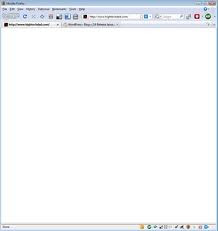Rosalie Fitzpatrick on fiction and cooking without allergens: writing, editing, best of lists, reading recommendations, books, mangas, movies, TV shows, comics, quotes and recipes. All recipes focus on allergen free cooking suitable for endometriosis and pregnancy: wheat, egg, cow's milk, rye, oats, soy, almonds, peanuts, red meat and gluten free. Also, most are seafood, alcohol, yeast and nut free. All other allergen exclusions vary per recipe.
Pages
▼
Monday, August 6, 2012
On approaching the blank sheet or screen
There is almost nothing more daunting than a blank sheet or a blank screen to a person bent on creativity. Aside from putting to ink what has only been pencil scribbles up until then, that is. Both beginning and finalising are terribly hard as beginning begs you to fill in the blank with your own thoughts and dreams, no prompting allowed, and the finalising gives you that terrible feeling you're about to be marked and judged worthless.
I say "you're" rather "your work" as for most people who've done something creative, any rejection to their work feels like a rejection of the mind and inspiration behind it rather than just of the work presented. It is all too personal. This is the reason why most people who go about rejecting works, either for a living or for fun, need to be a little gentle in their criticism. Constructive criticism is good and usually most helpful before the final stage. Downright slandering or "poo-pooing" like Matilda did the lion is just plain hurtful and doesn't really get anyone anywhere. Except maybe a pay packet for the critic and tears for the artist.
That said, this is on the beginning of creativity and less the finalising.
When starting out in writing or drawing or painting you're usually faced with a blank sheet, blank screen or blank canvas that seems to take on a life of its own. It stares back at you as though challenging you to fill it in properly and to make every word, pencil or brush stroke born of genius. There is no allowance for inept scribbling, according to the blank surface.
But far more often than not with art and writing, the work that is finally produced is actually the result of several trials and mistrials. To get a single sketch fairly finalised and ready for inking it may take several sheets of scribbles or several layers of scribbles before the image pops into being. Just as it takes several rewrites and edits for a novel to completely bloom.
The trick to getting past that blank screen or blank page stage is simple enough. You just have to realise that genius is usually born of hard work, skill is much practice and that you're only human and likely to stuff up multiple times on the way to creating anything fairly decent, not to mention gob-smacking awesome. That an boring another pair of eyes to help you see the faults and flaws in your work, especially if you're still insecure about your own skills, is how you go about creating.
That blank screen can be scribbled on and then returned to being blank or saved away for later thought. The sheet that's staring at you is likely one on top of a pile of sheets so think of it as a first draft rather than a final one and the sheet as replaceable if necessary. Canvasses are a bit more challenging as although you might have more, by the time it is set up as a blank canvas there has already been a lot of work done or a lot of money spent. So think of a canvas as an opportunity to layer those sketches and scribbles one on top of the other, followed by several coats of paint that create texture and a blending of colour you likely hadn't thought of. The same principles apply to painting a canvas as rewriting and editing the first draft of a book. It is all about adding and smoothing away and polishing.
Blank sheets, screens and canvases just need to be viewed as an opportunity rather than a challenge and from there you can play to your heart's content. As an opportunity to express yourself a blank page or canvas is enticing, especially if you have something on your mind that you'd like to show the world. And if the page or canvas is still a little daunting then just take up a pencil and scrawl a few light shapes on it, light enough that they can be rubbed away without leaving any marks behind. That way, the surface to work on isn't blank anymore and you can approach it freely.
If you're writing then just write down the conversation you just had or the lyrics of the music you just listened to or even a quote from the movie you just watched. Write down something that stuck in your mind. Then just write what's on your mind, whether its a different topic or not. Start with a feature of the world you're imagining or a character that's bumbling about in a half built world within your mind. Anything will do until your ideas begin to form properly. And anything you don't want to keep just delete once the page is no longer scary.


No comments:
Post a Comment